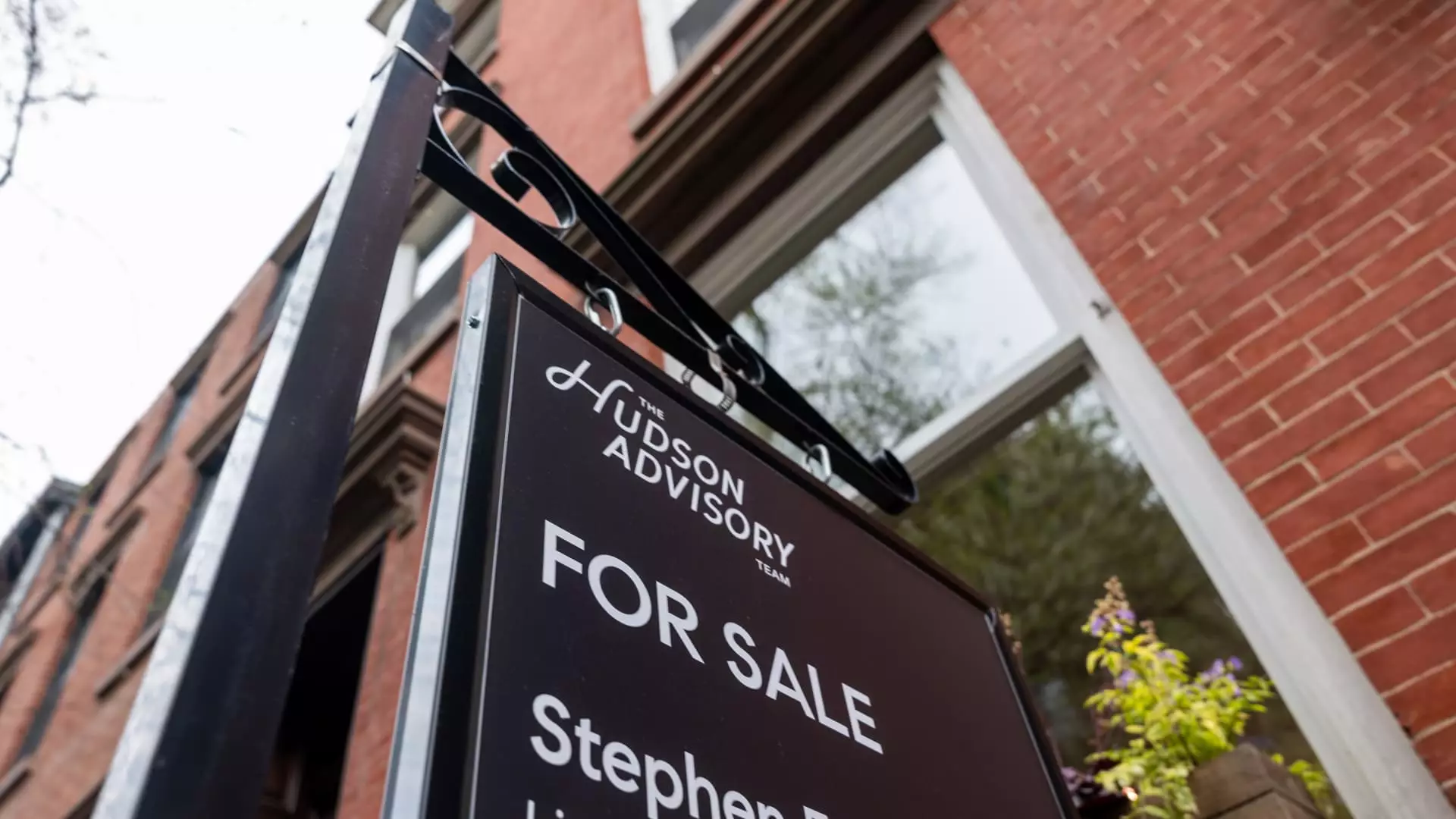In an unprecedented turn of events, the average rate on a 30-year fixed mortgage has skyrocketed to 7.1%. This staggering rise, marked by a 13 basis point increase in just one day, marks the highest rate since mid-February. Homebuyers today find themselves navigating a treacherous financial landscape, where the joy of purchasing a home is overshadowed by the harsh reality of soaring interest rates. The emotional strain on prospective homeowners is palpable, as they weigh the dream of owning property against the creeping fear of untenable financial commitments.
Economic Instability From Tariff Wars
The flux in mortgage rates has been kicked into overdrive by external economic factors, most notably the ongoing tariff disputes that have seen President Donald Trump imposing hefty taxes on imports from various countries. Just this week, bonds surged in response to these new tariffs, only to plummet back down when Trump announced a decrease in rates for many nations. This turbulence is not merely a backdrop; it is a crucial player in shaping the financial decisions of consumers. With Chinese imports bearing a staggering 145% tariff, the broader implications for the economy and housing market are concerning, reshaping the way Americans interpret financial stability.
The Bond Market’s Roller Coaster
It’s essential to understand that mortgage rates are intricately linked to the yield on the 10-year Treasury, and this week witnessed an alarming sell-off in the latter. With bond yields exhibiting a dramatic spike—the worst seen in decades according to Matthew Graham of Mortgage News Daily—homebuyers are left grappling with the fallout. Accustomed to more favorable conditions, today’s market presents an unsettling sense of urgency that can lead to hasty decisions. For many, consultation with financial experts is no longer a luxury but a necessity, as they attempt to decipher an increasingly complex economic environment.
The Inflation Dilemma
Adding to the gravity of the situation is the latest inflation report, which has indicated a significant jump in consumer sentiment expectations—from 5% to a staggering 6.7%—the highest in over forty years. This news sends shockwaves through the real estate market and may discourage potential buyers who fear market instability. When the foundations of economic confidence begin to crumble, so too does the assurance that homeownership will remain a sound investment. The psychological weight of inflation impacts not just finances but also the inherent desire for stability that drives the American dream.
Consequences of the Spring Housing Market
The spring housing market, traditionally the busiest season for real estate transactions, now feels different; it’s tinged with anxiety. As the stakes rise, the risks grow for consumers who are already facing significant barriers. The emotional burden of acquiring what is often the largest financial investment in one’s lifetime is intensified by rising rates and market unpredictability. The hope of turning the dream of homeownership into reality is becoming increasingly elusive.
The current economic environment, steeped in uncertainty and volatility, serves as a stark reminder of the fragile interplay between political policy, economic indicators, and personal finance. As Americans brace themselves for what lies ahead, it’s essential to acknowledge that navigating this landscape requires not just financial acumen but also a lens of prudence and self-awareness. The choices made today may have long-lasting implications, both for individual households and the broader economy.

